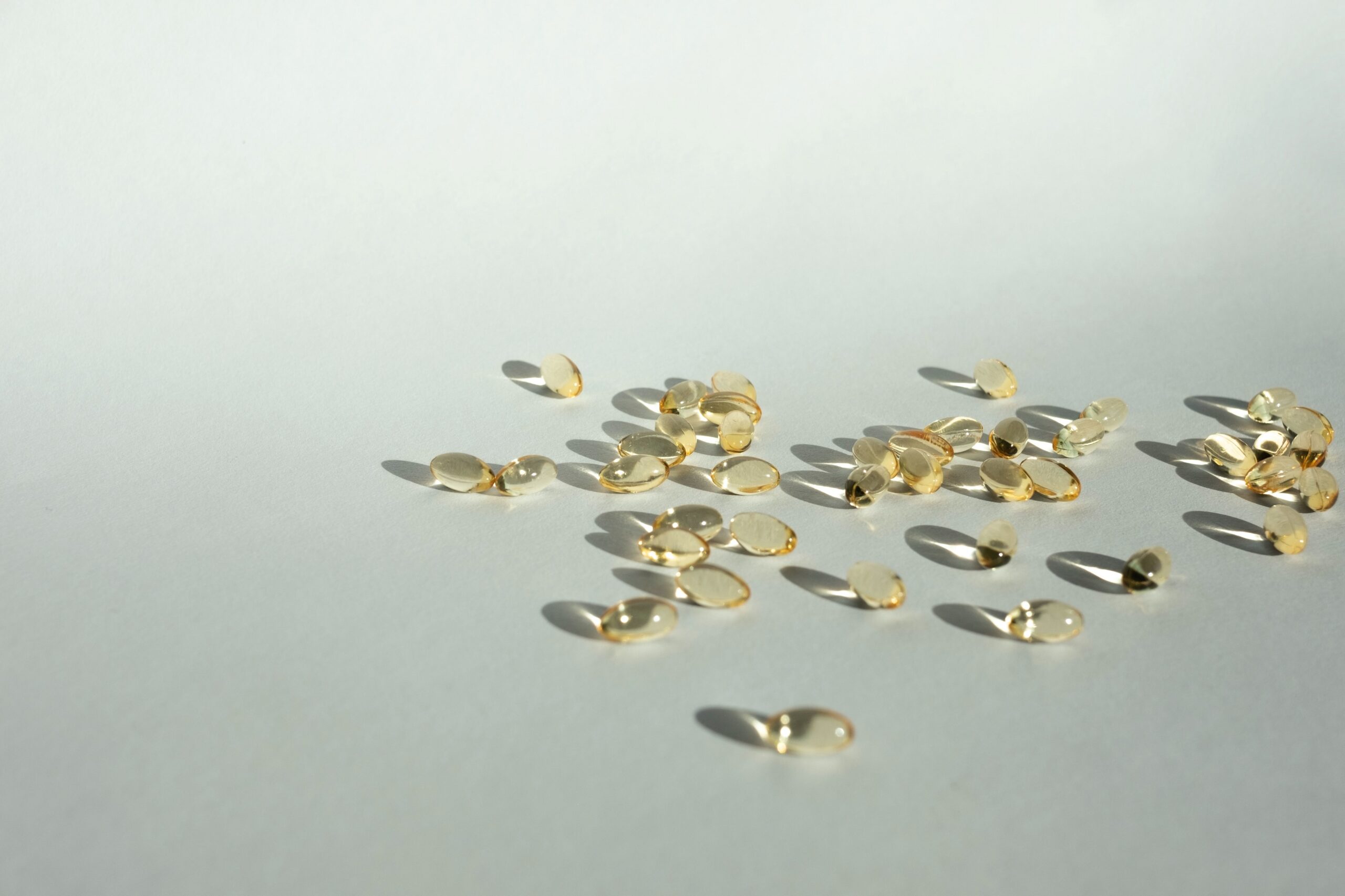Aspen Nutrition CoQ10 Forte for Heart Health
Coenzyme Q10 also known as CoQ10; is a nutrient that is made by the body and stored in mitochondria1. CoQ10 acts as an antioxidant that protects cells from free radical damage and plays an essential role in energy metabolism as it involves in the production of adenosine triphosphate (ATP), a biochemical form of energy2.
The normal blood level of total CoQ10 in children and adults are 320-1558µg/L and 433-1532µg/L, respectively3. However, its production depletes with progressive aging; thus, older people tend to have lower serum levels of CoQ10; which makes them have increased tiredness. Besides aging, vitamin B6 deficiency, genetic defects involving CoQ10 synthesis or utilization, increased demand, mitochondrial diseases, oxidative stress due to aging, and consumption of statin drugs may link to the depletion of CoQ10 level in the human body.
Congestive heart failure (CHF) is often a consequence of other heart diseases, such as coronary heart disease (CHD) and hypertension. CHD and hypertensive increase oxidative damage and inflammation of the blood vessels. These problems will progress badly until a point causing the heart unable to beat regularly. Several studies have shown that taking CoQ10 can be beneficial in managing CHF2. A study with 420 people with heart failure treated with CoQ10 100mg 3 times a day reported improved symptoms and reduced risk of mortality from CHF4. Daily supplementation of CoQ10 at 300mg per day enhances antioxidant enzyme activities and lower inflammation in patients undergoing statin therapy5. In addition, another study treated 641 patients with 2mg/kg CoQ10 or placebo for a year. At the end of the intervention, patients in the CoQ10 group had been hospitalized less frequently for worsening heart failure and less episodes of serious complications6. According to the study, patients supplemented with CoQ10 show improvement in functional parameters such as ejection fractions, stroke volume, cardiac output, cardiac index and end diastolic volume index7.
Researchers found out that CoQ10’s cardioprotective effect is derived from its ability to restoring optimal energy production, and acts as a potent antioxidant to prevent cell membrane oxidation and lipid peroxidation, stabilising LDL particles, and promoting recycling of α-tocopherol2. Statins and beta-blockers are often used in managing patients with CHF as it is believed to prevent cardiovascular comorbidities. However, studies show that these drugs decrease CoQ10 level by inhibiting cholesterol synthesis and myocardial enzyme, respectively8, 9. An observational study by Molyneux et al, showed that CoQ10 is an independent predictor of survival rate of patients with CHF10. Studies reveal that myocardial level of CoQ10 in patients with CHF is lower by 33% as opposed to patients in control group11. Aforementioned evidence suggests that CoQ10 may be useful in replenishing optimal serum myocardial CoQ10 level; which may improve ATP production and left ventricular function.
Chronic usage of statins among patients with CHF to treat hyperlipidaemia causes depletion of essential nutrient CoQ10; which leads to side effects such as myalgia, muscle pain & weakness, headaches, sleep difficulty, fatigue, memory loss & confusion, nausea & vomiting, and increased of risk of mortality. Aforementioned conditions affect patient’s compliance to continue statin medication and studies show that up to 75% of statin users with statin-associated muscle symptoms (SAMS) discontinued statin therapy within 2 years12. This is likely due to statins’ action in inhibiting HMG-CoA reductase to block cholesterol synthesis also block CoQ10 synthesis indirectly; the reduction in serum CoQ10 level leads to mitochondrial dysfunction that disturbs ATP production that negatively impacts exercise endurance and causing SAMS characterized by muscle pain, stiffness, tenderness, cramps and weakness13. These symptoms are preventable by supplementing the patient on statin medication with CoQ1014. Patients who are supplemented with CoQ10 reported reduced intensity of muscle pain, muscle weakness, muscle cramps and muscle tiredness. Littlefield’s study shows that supplementation of CoQ10 at a dose between 30mg to 200mg per day has shown to have beneficial effects on statin induced myopathy with no reported side effects15.
Aspen Nutrition CoQ10 Forte contains 150mg per capsule and can be used as adjunct treatment to CoQ10 deficiency caused by statin medications as well as to improve general health; take 1 to 2 capsules daily or as recommended by your medical professionals.
References
- Lorenzo Galluzzi, Oliver Kepp, Christina Trojel-Hansen and Guido Kroemer. Mitochondrial control of cellular life, stress and death. Circ Res. 2012;00:1198-1207
- James J DiNicolantonio, Jaikrit Bhutani, Mark F McCarty, and James H O’Keefe. Coenzyme Q10 for the treatment of heart failure: a review of the literature. Open Heart 2015; 2: 1-5
- Miles MV, Horn PS, Tang PH, Morrison JA, Miles L, DeGrauw T, Pesce AJ. Age-related changes in plasma coenzyme Q10 concentrations and redox state in apparently healthy children and adults. Clin Chim Acta. 2004; 347(1-2):139-44.
- Mortensen SA, Rosenfeldt F, Kumar A, Dolliner P, Filipiak KJ, Pella D, Alehagen U, Steurer G, Littarru GP; Q-SYMBIO Study Investigators. The effect of coenzyme Q10 on morbidity and mortality in chronic heart failure: results from Q-SYMBIO: a randomized double-blind trial. JACC Heart Fail. 2014 Dec;2(6):641-9
- Bor-Jen Lee, Yu-Fen Tseng, Chi-Hua Yen & Ping-Ting Lin. Effects of coenzyme Q10 supplementation (300mg/day) on antioxidation and anti-inflammation in coronary artery disease patients during statins therapy: a randomized, placebo-controlled trail. Nutr J.2013; 12(1): 142
- Morisco C, Trimarco B, Condorelli M. Effect of coenzyme Q10 therapy in patients with congestive heart failure: a long-term multicenter randomized study. Clin Investig. 1993; 71(8 Suppl):S134-6
- Soja AM, Mortensen SA. Treatment of congestive heart failure with coenzyme Q10 illuminated by meta-analyses of clinical trials. Mol Aspects Med. 1997; 18 Suppl: S159-68.
- Folkers K, Langsjoen P, Willis R, et al. Lovastatin decreases coenzyme Q levels in humans. Proc Natl Acad Sci U S A. 1990; 87(22):8931-8934
- Kishi T, Watanabe T, Folkers K. Bioenergetics in clinical medicine XV. Inhibition of coenzyme Q10-enzymes by clinically used adrenergic blockers of beta-receptors. Research Communications in Chemical Pathology and Pharmacology. 1977 May;17(1):157-164
- Molyneux SL, Florkowski CM, George PM, Pilbrow AP, Frampton CM, Lever M, Richards AM. Coenzyme Q10: an independent predictor of mortality in chronic heart failure. J Am Coll Cardiol. 2008 Oct 28;52(18):1435-41
- Mortensen SA, Vadhanavikit S, Muratsu K, Folkers K. Coenzyme Q10: clinical benefits with biochemical correlates suggesting a scientific breakthrough in the management of chronic heart failure. Int J Tissue React. 1990;12(3):155-62
- Juan P. Brito, and Victor M. Montori. Reinitiation of Statins after Statin-Associated Musculoskeletal Symptoms: A Patient-Centered Approach. Circ Cardiovasc Qual Outcomes. 2013; 6:243-7
- Deichmann R, Lavie C, Andrews S. Coenzyme q10 and statin-induced mitochondrial dysfunction. Ochsner J. 2010; 10(1):16-21.
- Langsjoen PH, Langsjoen AM. Supplemental ubiquinol in patients with advanced congestive heart failure. 2008;32(1-4):119-28
- Littlefield N, Beckstrand RL, Luthy KE. Statins’ effect on plasma levels of Coenzyme Q10 and improvement in myopathy with supplementation. J Am Assoc Nurse Pract. 2014 Feb;26(2):85-90


